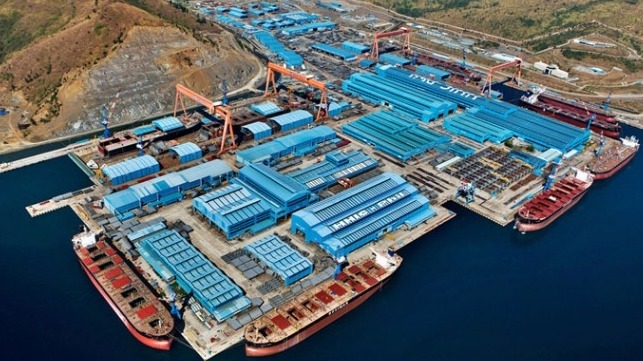Philippines Creates Tax Incentives to Attract Shipbuilding Investors

The Philippines is rolling out a string of measures in the hopes of reviving its shipbuilding and ship repair sector, which was hit hard by the COVID19 pandemic.
According to a new article in The Manila Times, the Philippine government has identified shipbuilding as a strategic sector for the economic recovery and is taking new steps to encourage investment. The Philippines has one of the most vibrant shipbuilding economies, boasting about 118 shipyards. The recent economic slowdown has crippled the industry, which has contributed to material delivery delays, lockdown-induced workforce disruptions and and increased operational expenses, leading to production delays and serious cash flow problems.
Because of this, the Philippine government has included the shipbuilding sector among industries that should enjoy economic benefits under a newly enacted Corporate Recovery and Tax Incentives for Enterprises (CREATE) Act. The law proposes fiscal relief for both domestic and foreign shipyards doing business in the Philippines.
This could have significant benefits for a foreign bidder for the assets of the defunct HHIC-Phil shipyard in Subic Bay, the largest shipbuilding facility in the country. HHIC-Phil has been closed since it went bankrupt in 2019, and the Philippine government has hinted that a North American buyer is in talks to acquire the yard by the end of the year.
In a recent Philmarine 2021 virtual conference, Reynaldo Lignes, Chief Investments Specialist on Shipbuilding under the Department of Trade and Industry (DTI), apprised the industry on the benefits of the law.
The Philippines 2020 Investment Priorities Plan (IPP), signed by President Rodrigo Duterte in November 2020, identified shipbuilding as one of the preferred investment activities for the country. Unlike in the past, when foreign-owned shipbuilding companies could only accept orders for exports, Lignes said the new IPP now allows them to cater to the domestic market. In addition, shipbuilding companies will be entitled to reduced corporate income tax (CIT) rate from 30 percent to 25 percent for both foreign and domestic shipyards, retroactively from July 2020.
Lignes also added that the president is allowed by law to grant further incentives to highly desirable projects with a minimum investment capital of $1 billion or capable of generating 10,000 jobs.
Shipyard owners will also be exempted from import duties for capital equipment, raw materials, spare parts and accessories, including an exemption from paying Value Added Tax (VAT).
These incentives are timely as the Philippines is experiencing significant domestic demand for ships due to a decision by the Maritime Industry Authority (MARINA) to phase out wooden-hulled boats. The Philippines Navy has also been allocated a $1.44 billion budget for modernization and acquisition of new vessels, and is calling for industry players to ramp up shipbuilding activity to satisfy the demand.
